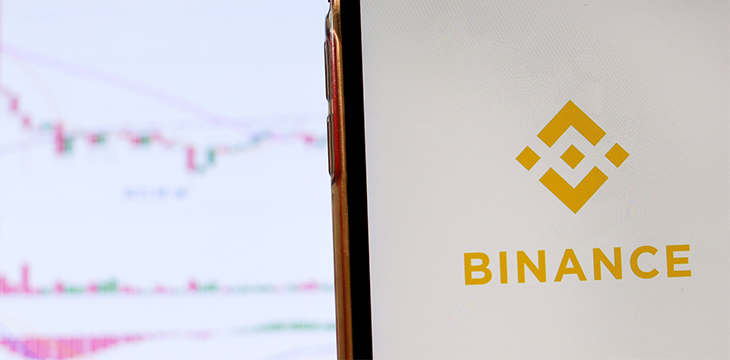|
Getting your Trinity Audio player ready...
|
The Binance show rolls on, this week bringing a sudden stop to its service in Norway, a potentially huge class action claim by disgruntled whale traders… and they could potentially be looking for investment from Singapore’s sovereign wealth fund.
The latest reports paint a picture of an extremely wealthy company (and founders), one that is facing very different situations in the various jurisdictions it operates in.
Nothing further to do with Norway
On August 27, the world’s largest exchange by trading volumes posted an update titled “Changes to Product Offerings in Norway.” The “changes” appear to be more of a halt, since “effective immediately” Binance would discontinue all Norwegian krone (NOK) trading pairs and payment options, and would even remove Norwegian language website support.
In a further attempt to distance itself from all things Norwegian, Binance noted that it “does not maintain any official Telegram or other online communication channels in Norwegian.”
The cryptocurrency exchange didn’t specify a reason for the sudden change, although local regulator the Financial Supervisory Authority of Norway had issued a broad warning against digital asset trading in June 2021, saying they were “subject to extreme price fluctuation” and were prone to deceptions and scams.
Meanwhile in Singapore
After once refusing investment from Sequoia Capital, Binance is reportedly seeking some from Vertex Ventures, a subsidiary of Singapore’s sovereign wealth fund Temasek.
Exclusive: Multiple sources told that Binance is considering obtaining investment and protection from government funds at a valuation of $200 billion. Singapore is one of the most likely options. pic.twitter.com/y0ghk1vlYd
— Wu Blockchain (@WuBlockchain) August 23, 2021
The Twitter thread from Chinese journalist Colin Wu added that his source had said “Binance’s equity belongs to founder CZ (Changpeng Zhao) and co-founder He Yi.” The move to obtain investment from government funds (most likely Singapore) also valued the company at US$200 billion.
Just last week, Binance also appointed former Director of Corporate Finance at regulator the Monetary Authority of Singapore (MAS) as CEO of Binance Singapore. Vertex Ventures has previously made investments in Binance Singapore, and the latest reports hint it could also invest in Binance Global.
Disgruntled traders claim millions in losses
Meanwhile, a group of legal advocates are rallying support for a class action against Binance over frozen accounts. The Steering Committee for the Binance Claim (or simply, “Binance Claim”) is funded by Swiss-based private equity firm LitiCapital and is seeking those claiming to have suffered financial losses as a result of Binance system outages since October 2020.
https://twitter.com/binanceclaim/status/1431050362673242116
The campaign is looking at all instances of traders not being able to trade, but has highlighted an incident on May 19, 2021, where “at least 700 known traders” (and potentially thousands) suffered over US$100 million in losses when they found themselves unable to trade during a digital asset price crash.
CNBC said the case “could become one of the largest international consumer arbitration cases in history.” Binance has an average daily trading volume of $2 billion, and averages 1.4 million transactions per second on its platform, it noted.
Binance has said: “Our policy is fair in that we compensate users who experienced actual trading losses due to our system’s issues. We do not cover hypothetical ‘what could have been’ situations such as unrealized profits.”
Traders signing up for Binance accounts usually waive their rights to such litigation, instead insisting that all claims be arbitrated in Hong Kong at a cost of US$65,000 per claimant (whatever the result).
LitiCapital Executive Chairman David Kay said Binance had “broadly ignored” traders’ complaints on the matter. Liti is committing “at least $5 million” to the case in return for 30% of any amounts the claimants may ultimately receive. The firm specializes in financial litigation, tokenizes shares in its company and pays dividends to token holders when it wins a case that pays damages.
He gave the example of one trader who’d lost US$12 million in BTC when he was unable to close his position during the May 2021 incident. When the system came back online, Binance had liquidated his account.
How do consumers interact with a company “without regulation, without offices, without headquarters”? Kay asked. “How can it be held accountable?” This ambiguous structure left developed countries powerless to protect their citizens against financial losses, as opposed to fully compliant exchanges. He said the claim would be a test of Binance’s arbitration mechanisms and could potentially reveal information about how its system operates.
Follow CoinGeek’s Crypto Crime Cartel series, which delves into the stream of groups—a from BitMEX to Binance, Bitcoin.com, Blockstream, ShapeShift, Coinbase, Ripple and
Ethereum—who have co-opted the digital asset revolution and turned the industry into a minefield for naïve (and even experienced) players in the market.

 02-23-2026
02-23-2026 




